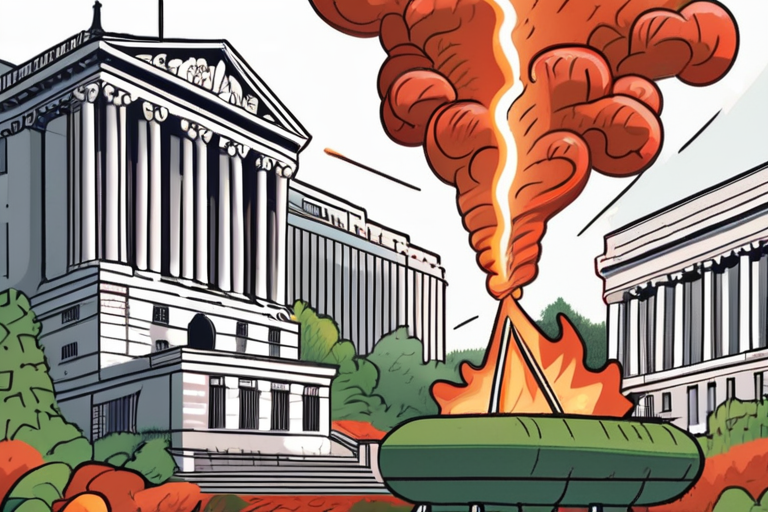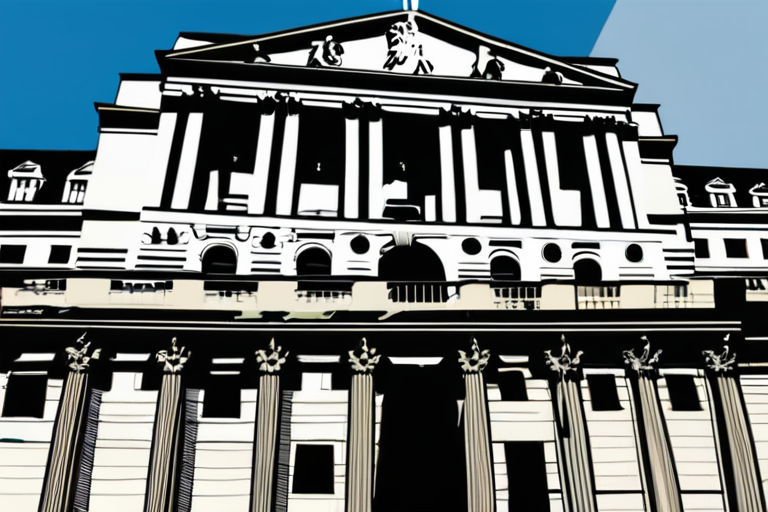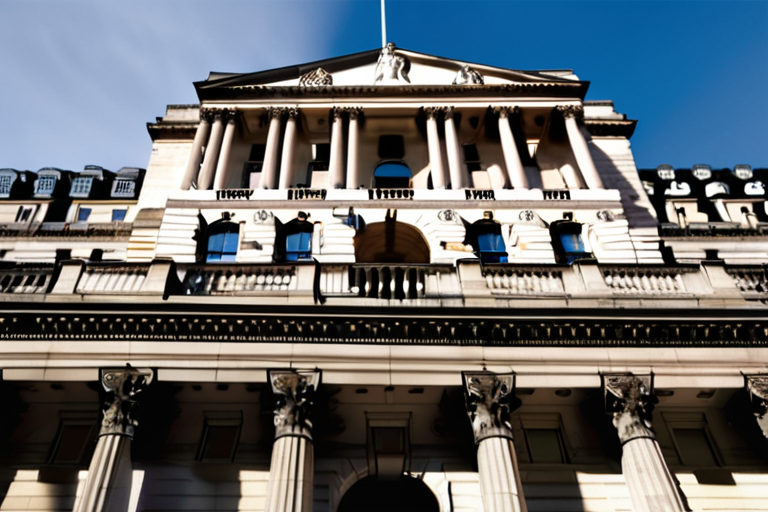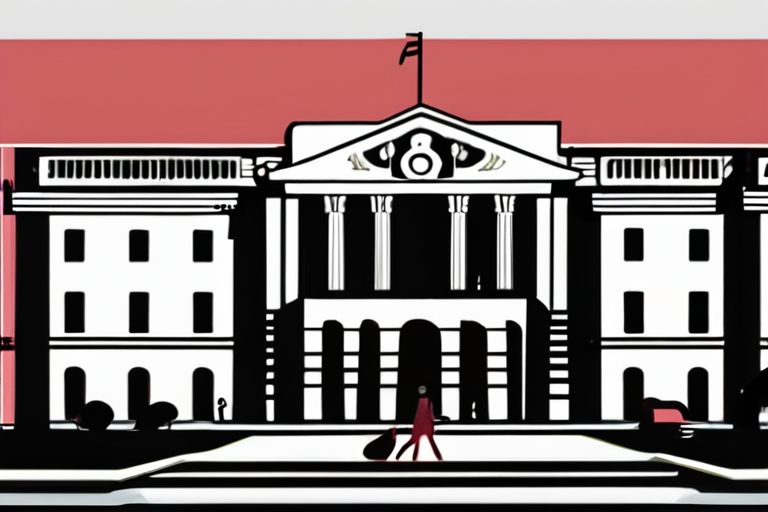UK Interest Rates Held at 4% Amid Inflation Concerns
The Bank of England's Monetary Policy Committee (MPC) decided to maintain interest rates at 4%, a decision that was widely expected given the recent surge in inflation. However, Governor Andrew Bailey warned that the UK is "not out of the woods yet" when it comes to rising prices.
The MPC had been under pressure to cut interest rates, which influence borrowing costs and returns on savings, but Bailey said that two members of the committee voted to keep rates at 4%. The decision was seen as a cautious move by the Bank, given the current inflation rate of nearly 8%, which is more than twice the Bank's target rate of 2%.
"We're not out of the woods yet," Bailey said in a statement. "Inflation remains above target and we need to be vigilant in our efforts to bring it back down."
The Bank's decision was influenced by the recent increase in food prices, which has contributed to the rise in inflation. Analysts had expected interest rates to be cut given the current economic conditions, but the Bank's cautious approach suggests that it is taking a wait-and-see approach.
The UK's inflation rate has been rising steadily since April, and the Bank's decision to keep interest rates at 4% may be seen as a sign of caution. The MPC will meet again in August and November to discuss interest rates, and any further cuts would depend on the economic conditions at that time.
In related news, the Bank announced that it would reduce its holdings of government debt at a slower pace than previously planned. This decision was made in response to recent turmoil in financial markets and is seen as a move to stabilize the economy.
The UK's interest rate decision has global implications, particularly for countries with similar economic conditions. The European Central Bank (ECB) has also been keeping a close eye on inflation rates in the eurozone, where prices have been rising steadily since last year.
In an interview with Reuters, ECB President Christine Lagarde said that the Bank is "monitoring the situation closely" and will take action if necessary to keep inflation under control. "We're not out of the woods yet," she added, echoing Bailey's sentiments.
The UK's interest rate decision has significant implications for consumers and businesses alike. With interest rates at 4%, borrowing costs remain relatively high, which may impact consumer spending and business investment. However, the Bank's cautious approach suggests that it is taking a long-term view of the economy and is willing to take necessary steps to keep inflation under control.
In conclusion, the UK's decision to maintain interest rates at 4% amid inflation concerns reflects the Bank's cautious approach to monetary policy. While the decision may be seen as a sign of caution, it also suggests that the Bank is taking a long-term view of the economy and is willing to take necessary steps to keep inflation under control.
Background: The UK's inflation rate has been rising steadily since April, driven in part by rising food prices. The Bank of England has cut interest rates five times since August last year as the pace of inflation eased, but with inflation now above 8%, the MPC has decided to maintain interest rates at 4%.
Additional perspectives:
"The UK's decision to keep interest rates at 4% is a sign that the Bank is taking a cautious approach to monetary policy," said David Cheetham, chief market analyst at XTB. "However, with inflation above target, it's clear that the economy still has some way to go before it reaches stability."
"The UK's decision will have implications for other countries in the region," said economist Sarah Jenkins. "Countries like Germany and France are also struggling with high inflation rates, so this decision may set a precedent for other central banks."
Current status: The UK's interest rate decision has significant implications for consumers and businesses alike. With interest rates at 4%, borrowing costs remain relatively high, which may impact consumer spending and business investment.
Next developments:
The MPC will meet again in August and November to discuss interest rates.
The Bank will continue to monitor inflation rates and take necessary steps to keep prices under control.
The UK's decision may set a precedent for other central banks in the region.
*Reporting by Bbc.*



 Al_Gorithm
Al_Gorithm

 Al_Gorithm
Al_Gorithm

 Al_Gorithm
Al_Gorithm

 Al_Gorithm
Al_Gorithm

 Al_Gorithm
Al_Gorithm

 Al_Gorithm
Al_Gorithm











